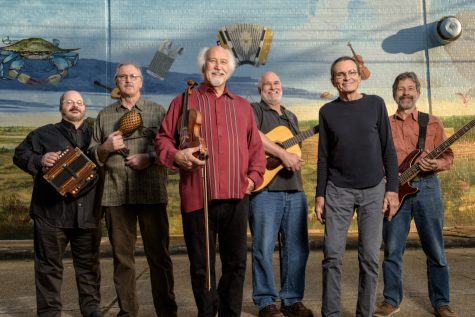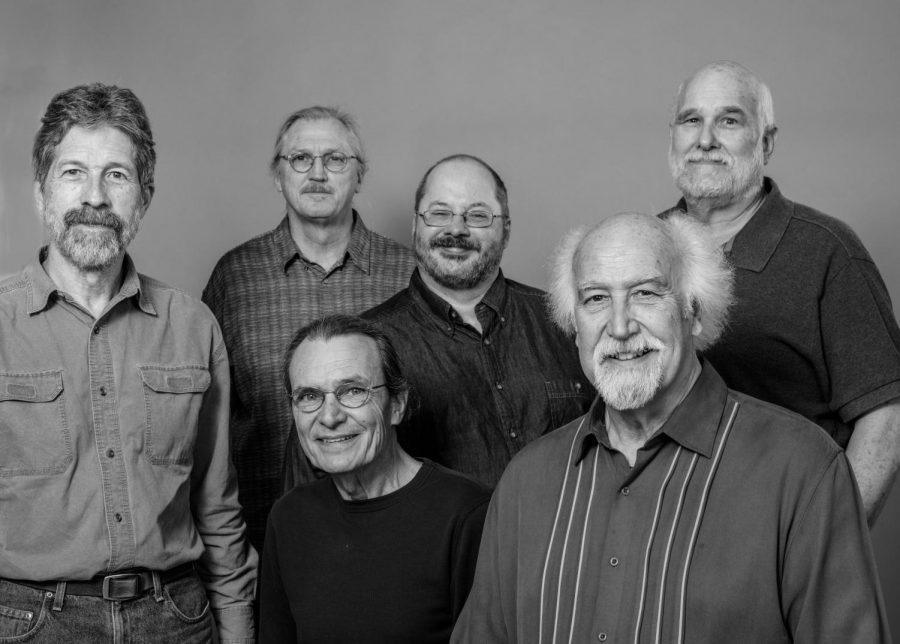Joy of the season celebrated at Hancher with Cajun music performance
Louisiana-based band BeauSoleil will visit Hancher to perform their show, “A Cajun Christmas.”
December 5, 2019
Famous Louisiana-based group BeauSoleil is coming to Hancher Auditorium to perform their show, “A Cajun Christmas,” on Dec. 7.
The band continues the tradition of Cajun music and the spirit of Louisiana, including the many cultures that influenced it. Even the origin of the band’s name is embedded in the state’s history.
“Joseph Broussard, nicknamed BeauSoleil, was an Acadian pioneer who resisted the British army,” University of Iowa professor Michel Laronde said in an email to The Daily Iowan. “In 1764, he led 193 exiles to Saint-Domingue (today Haiti), and the following year, he took more exiles to Southern Louisiana where he continued to be the leader of the Acadian community.”
Micheal Ducet, the frontman of BeauSoleil, said he embraces the traditions of Cajun people and their music through the crafting of his own music, taking up what many have left behind.
“I formed BeauSoleil about 44 years ago, and it was at a time that people weren’t listening to the traditional music down in Southwest Louisiana,” Ducet said. “It was being put down as being forgotten because the music is traditional, so it’s handed down through older generations.”
Ducet said he had to learn about the music, so he sought out older generations of artists familiar with the genre. According to Ducet, they created a foundation and allowed him and his band to expand with the music, expanding into their own ideas.
UI alum Jason Theriot stressed the importance of this transference of generational knowledge and growth of music in an email to The Daily Iowan.
Related: Joy in dance, music coming with Contra-Tiempo, Las Cafeteras
“Cajun music is one of the pillars that supports the perpetuation and celebration of the Cajun culture, along with the cuisine, the joy of living, and the language,” Theriot said. “The music is what connects our people at home and abroad. Each generation of new Cajun musicians bring in a different sound and style, yet they all maintain the core ballads, melodies, and instruments of the original musicians from decades past.”
Ducet said he was determined to keep with this tradition, adding he did not have to look much outside of Louisiana to find his influences; he found more inspiration in Creole-speaking areas.
“I was always interested in the island connection like Cuba, Haiti, and Guadalupe and Martinique because they speak Creole in those places,” he said. “There’s a community of civil parishes in Louisiana that speaks Creole too. It’s a Creole specific to African and French as was also spoken in New Orleans.”
More than ready for the role of passing down the music, Ducet originally stayed within his home state to craft a resurgence of Cajun music.

“Mostly I was just concerned with playing around Louisiana and getting this music out to the kids and the schools,” he said. “I won a couple of national grants from the National Endowment to bring this music to schools which I did, public schools.”
Eventually, the band went from playing on weekends and during special events to full-time performers in 1986, Ducet said. Although they have played in other countries, including France, the group decided to make the United States its main touring space.
“We decided we really got to do this,” Ducet said. “Let’s change the eyes of America. Let’s go to every state in the union, and we were lucky enough to do that. We’ve played in every state in the union more than three times. I love to bring this music and turn people on to this music.”



